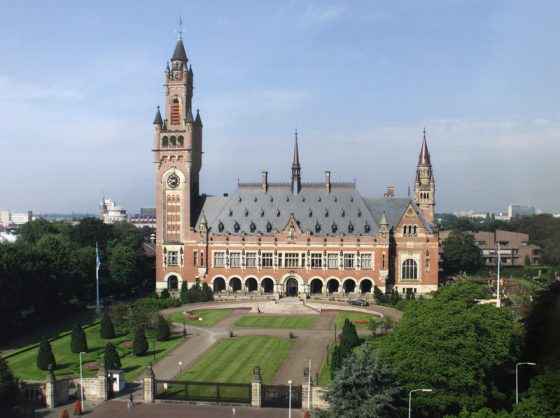National monument in The Hague to commemorate victims of Srebrenica genocide


A national monument to commemorate the victims of the genocide at Srebrenica is to be erected in The Hague.
The decision follows a request from the Bosnian community in the Netherlands supported by the Dutch defence and foreign affairs ministries, the AD reported over the weekend.
‘It is important that The Hague as a city of peace and justice is a place of remembrance of the tragedy that unfolded in 1995,’ The Hague’s mayor Jan van Zanen said. The Yugoslavia tribunal was held in the Hague and the International Court of Justice, also in The Hague, defined the massacre as an act of genocide in 2007.
Samir Hajdarevic, chair of the Remembrance of the Srebrenica Genocide committee, said he was ‘absolutely delighted’ with the support for a national monument. ‘We have lobbied for this for a long time and then this year things started moving and we we have been given the broad support we needed,’ he said. ‘The last three months have been an emotional rollercoster.’
A monument will mean much to the relatives of the victims and the Bosnian community in the Netherlands, he said. ‘It will help them process their grief.’ Hajdarevic said he was not concerned what the monument looks like, ‘as long as it says that it was a genocide and that over 8,000 Bosnian muslims were murdered.’
Location undecided
It is not clear yet where the monument, will be placed. Hajdarevic would like it to be in front of the International Criminal Court or the site of the Yugoslavia tribunal. ‘But we have to talk to the local council about that. There are more sites of historical value in The Hague.’
It was 25 years ago on Saturday when 8,372 people, mainly Bosnian muslims, were slaughtered by radical Bosnian Serbs in the worst massacre since the Second World War.
The Dutchbat troops, who were guarding a UN safe zone at the time, were overrun and during the subsequent evacuation on 12 and 13 July 1995, the Bosnian Serbs murdered some 350 male refugees after separating them from the other refugees.
The Dutch were accused by the so-called ‘Mothers of Srebrenica’ of assisting in the evacuation and of failing to defend the population. The case was escalated to the highest court because the state wanted to be cleared of responsibility, while the Mothers of Srebrenica wanted it to be held accountable for all 8,000 deaths in the genocide.
In 2019 the Supreme Court said the Dutch state could be held liable for 10% of the refugee deaths.
Sebrenica has remained an enduring trauma for many former Dutchbat troops who maintain that the mission was ‘ill prepared’ and troops ‘were given no support’.
Thank you for donating to DutchNews.nl.
We could not provide the Dutch News service, and keep it free of charge, without the generous support of our readers. Your donations allow us to report on issues you tell us matter, and provide you with a summary of the most important Dutch news each day.
Make a donation